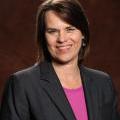25th Assembly District
Not in 25th Assembly District? Find your guide.
RETURN BALLOTS BY TUESDAY, MARCH 3RD
The Courage California Voter Guide compiles the information that allows you to make informed decisions about the races on your ballot, based on your values. Vote in every race on your ballot! It's our right and our responsibility. Please share this guide with your friends and family.
17th Congressional District
Rep. Ro Khanna was born and raised in Philadelphia, Pennsylvania, and attended the University of Chicago and Yale Law School. Khanna served the Obama Administration in Washington D.C. from 2009-2011; afterwards he accepted a position at a law firm and moved to Silicon Valley. He is the incumbent in the district, having served in this position since 2017. He is running for re-election on a platform supporting the Green New Deal, internet privacy reforms, Medicare for All, immigration reform, and economic growth.
In Congress, Khanna has been outspoken in support of legislation to fight climate change, including the Green New Deal. He has called for various online and cybersecurity reforms, including helping to draft an Internet Bill of Rights. He sponsored the VALOR Act, which became law in 2019 and makes it easier for employers to create apprenticeship programs for veterans. He is a member of the No PAC Caucus, which has pledged to not take donations from any PACs.
He currently serves on the House Armed Services Committee, House Budget Committee, and the House Committee on Oversight and Reform. Prior to the election in 2016, Rep. Khanna was an attorney at Wilson Sonsini, and taught Stanford University, Santa Clara University, and San Francisco State University. From 2009-2011, he served as Deputy Assistant Secretary at the U.S. Department of Commerce and in 2012, California Governor Jerry Brown appointed him to the California Workforce Investment Board.
Khanna is being challenged by Stephen Forbes (D), Joe Dehn (L) and Ritesh Tandon (R). Khanna has consistently demonstrated a commitment to progressive values, and a willingness to challenge the corporate power in his district. According to our analysis, Khanna is the strongest choice for continued progressive leadership in office.
Rep. Ro Khanna was born and raised in Philadelphia, Pennsylvania, and attended the University of Chicago and Yale Law School. Khanna served the Obama Administration in Washington D.C. from 2009-2011; afterwards he accepted a position at a law firm and moved to Silicon Valley. He is the incumbent in the district, having served in this position since 2017. He is running for re-election on a platform supporting the Green New Deal, internet privacy reforms, Medicare for All, immigration reform, and economic growth.
In Congress, Khanna has been outspoken in support of legislation to fight climate change, including the Green New Deal. He has called for various online and cybersecurity reforms, including helping to draft an Internet Bill of Rights. He sponsored the VALOR Act, which became law in 2019 and makes it easier for employers to create apprenticeship programs for veterans. He is a member of the No PAC Caucus, which has pledged to not take donations from any PACs.
He currently serves on the House Armed Services Committee, House Budget Committee, and the House Committee on Oversight and Reform. Prior to the election in 2016, Rep. Khanna was an attorney at Wilson Sonsini, and taught Stanford University, Santa Clara University, and San Francisco State University. From 2009-2011, he served as Deputy Assistant Secretary at the U.S. Department of Commerce and in 2012, California Governor Jerry Brown appointed him to the California Workforce Investment Board.
Khanna is being challenged by Stephen Forbes (D), Joe Dehn (L) and Ritesh Tandon (R). Khanna has consistently demonstrated a commitment to progressive values, and a willingness to challenge the corporate power in his district. According to our analysis, Khanna is the strongest choice for continued progressive leadership in office.
State Assembly, 25th District
There are three well-qualified candidates in this race who have received broad support from progressive advocates and leaders: Alex Lee, Anna Song, and Anne Kepner. After extensive research, we believe all three are good choices. Read the full descriptions of each candidate to find the candidate who best fits your values and priorities for District 25 Assemblymember.
Alex Lee has lived in the South Bay all his life. According to campaign materials he is running for State Assembly because he wants to build on his experience as a legislative staff to advocate for Bay Area residents on issues of housing, education, and climate change as an elected official.
Lee has spent his short career working as a legislative aide to state officials, which he does to act as a constituent liaison who can bridge the gap between community needs and the legislative process. He began in the office of State Senator Henry Stern and then transitioned to be a field representative for Assemblymember Evan Low. Lee has been active on issues around homelessness, housing affordability, and public safety, and has promised to prioritize solving the housing crisis if he is elected. Prior to entering state politics, Lee was Student Body President at UC-Davis where he worked to advocate for improved student benefits around tuition and housing.
According to recent election results, Democrats usually win this seat.
Alex Lee has lived in the South Bay all his life. According to campaign materials he is running for State Assembly because he wants to build on his experience as a legislative staff to advocate for Bay Area residents on issues of housing, education, and climate change as an elected official.
Lee has spent his short career working as a legislative aide to state officials, which he does to act as a constituent liaison who can bridge the gap between community needs and the legislative process. He began in the office of State Senator Henry Stern and then transitioned to be a field representative for Assemblymember Evan Low. Lee has been active on issues around homelessness, housing affordability, and public safety, and has promised to prioritize solving the housing crisis if he is elected. Prior to entering state politics, Lee was Student Body President at UC-Davis where he worked to advocate for improved student benefits around tuition and housing.
According to recent election results, Democrats usually win this seat.
Anna Song has lived in Santa Clara County for over 20 years. According to campaign materials she is running for State Assembly to leverage her two decades of county experience to provide leadership and direction in the statehouse.
Anna Song is an insurance agent, and the current Vice President of the Santa Clara County Board of Education. She does this work to use her aptitude for critical thinking and collaboration to advocate for positive outcomes for students across the county. She has been a strong voice for families and vulnerable members of the education community during her 20 years on the Board. Song has a background in non-profit management, with particular attention to domestic violence and fair housing advocacy. She has also served four terms on the Santa Clara County Democratic Party Central Committee and has been honored with an award for her work by the California Democratic Party.
According to recent election results, Democrats usually win this seat.
Anna Song has lived in Santa Clara County for over 20 years. According to campaign materials she is running for State Assembly to leverage her two decades of county experience to provide leadership and direction in the statehouse.
Anna Song is an insurance agent, and the current Vice President of the Santa Clara County Board of Education. She does this work to use her aptitude for critical thinking and collaboration to advocate for positive outcomes for students across the county. She has been a strong voice for families and vulnerable members of the education community during her 20 years on the Board. Song has a background in non-profit management, with particular attention to domestic violence and fair housing advocacy. She has also served four terms on the Santa Clara County Democratic Party Central Committee and has been honored with an award for her work by the California Democratic Party.
According to recent election results, Democrats usually win this seat.
Anne Kepner was raised in San Jose and has lived in Santa Clara for over 20 years. According to campaign materials, she is running for State Assembly to bring her community and professional experience to the statehouse to shift policy on issues of education, economic opportunity, and housing.
Kepner is an attorney, which she does to advocate for marginalized communities in cases relating to predatory and negligent behavior from companies and institutions. She is a past President of the West Valley-Mission Community College Board, currently serves as the Board Chair for the Mission City Community Fund and is the PTA President at Buchser Middle School. As a lifelong resident of the area, Kepner has observed the economic shift of the region over her lifetime and hopes to establish comprehensive wrap-around services for residents as an Assemblymember. Her agenda leans heavily on plans to eliminate barriers to access to housing and education that make life in the region challenging for working families.
According to recent election results, Democrats usually win this seat.
Anne Kepner was raised in San Jose and has lived in Santa Clara for over 20 years. According to campaign materials, she is running for State Assembly to bring her community and professional experience to the statehouse to shift policy on issues of education, economic opportunity, and housing.
Kepner is an attorney, which she does to advocate for marginalized communities in cases relating to predatory and negligent behavior from companies and institutions. She is a past President of the West Valley-Mission Community College Board, currently serves as the Board Chair for the Mission City Community Fund and is the PTA President at Buchser Middle School. As a lifelong resident of the area, Kepner has observed the economic shift of the region over her lifetime and hopes to establish comprehensive wrap-around services for residents as an Assemblymember. Her agenda leans heavily on plans to eliminate barriers to access to housing and education that make life in the region challenging for working families.
According to recent election results, Democrats usually win this seat.
Statewide Ballot Measures
This proposition would provide $9 billion for desperately needed renovations to public preschools and grade schools throughout the state, and $6 billion for construction to community colleges, the Cal State system, and the UC system. This will allow the state of California to use tax revenue to pay for improvements that local communities cannot afford.
The funding would come from bonds the state would pay back over 35 years, totaling an estimated $26 billion, which includes $15 billion in principal and $11 billion in interest. This investment is well worth the costs. It takes money, after all, to ensure that students -- especially those in districts that can’t afford major capital improvement projects -- do not have to learn in dangerous environments.
The vast majority of Democrats in the state legislature support it, as does Gov. Newsom, and the only major opposition is a group called the Howard Jarvis Taxpayers Association. This is the group famous for destroying California’s school funding system in 1978 through another proposition, ironically one that was also dubbed Prop 13. The group spends most of its time lobbying to reduce tax rates. It has never shown any interest in supporting California’s children, at least if that means wealthy individuals or giant corporations would pay their fair share in taxes.
Critics of the measure have pointed out that the ballot measure’s language includes a provision that frees new multi-family developments around subway stops and bus stations from school impact fees. This provision will make it easier for developers to build apartment buildings within a half-mile of public transit but could also drive up the cost of new housing and take funds away from school districts across the state. Despite this provision, the measure is still supported by most education groups in the state, who believe the overall funding allocation to schools outweighs the impact of reduced funding to school districts located near transit hubs. 2020’s Prop 13 is worth the investment since it means children will soon be able to attend school in buildings that are retrofitted to withstand earthquakes and no longer have lead in their water.
We strongly recommend a YES vote on Prop 13.
This proposition would provide $9 billion for desperately needed renovations to public preschools and grade schools throughout the state, and $6 billion for construction to community colleges, the Cal State system, and the UC system. This will allow the state of California to use tax revenue to pay for improvements that local communities cannot afford.
The funding would come from bonds the state would pay back over 35 years, totaling an estimated $26 billion, which includes $15 billion in principal and $11 billion in interest. This investment is well worth the costs. It takes money, after all, to ensure that students -- especially those in districts that can’t afford major capital improvement projects -- do not have to learn in dangerous environments.
The vast majority of Democrats in the state legislature support it, as does Gov. Newsom, and the only major opposition is a group called the Howard Jarvis Taxpayers Association. This is the group famous for destroying California’s school funding system in 1978 through another proposition, ironically one that was also dubbed Prop 13. The group spends most of its time lobbying to reduce tax rates. It has never shown any interest in supporting California’s children, at least if that means wealthy individuals or giant corporations would pay their fair share in taxes.
Critics of the measure have pointed out that the ballot measure’s language includes a provision that frees new multi-family developments around subway stops and bus stations from school impact fees. This provision will make it easier for developers to build apartment buildings within a half-mile of public transit but could also drive up the cost of new housing and take funds away from school districts across the state. Despite this provision, the measure is still supported by most education groups in the state, who believe the overall funding allocation to schools outweighs the impact of reduced funding to school districts located near transit hubs. 2020’s Prop 13 is worth the investment since it means children will soon be able to attend school in buildings that are retrofitted to withstand earthquakes and no longer have lead in their water.
We strongly recommend a YES vote on Prop 13.




There are three well-qualified candidates in this race who have received broad support from progressive advocates and leaders: Alex Lee, Anna Song, and Anne Kepner. After extensive research, we believe all three are good choices. Read the full descriptions of each candidate to find the candidate who best fits your values and priorities for District 25 Assemblymember.